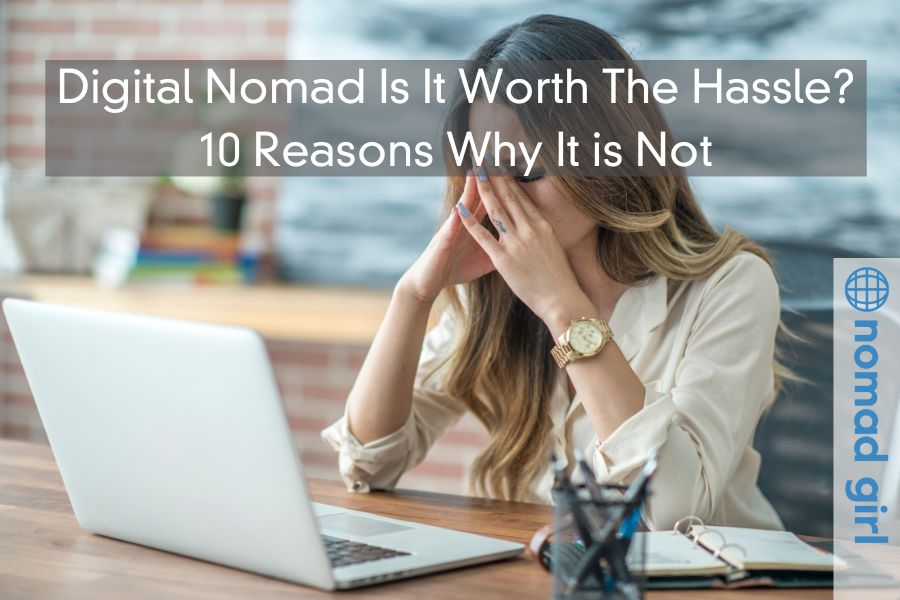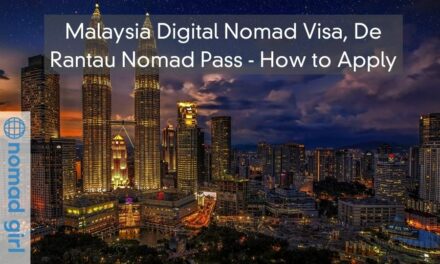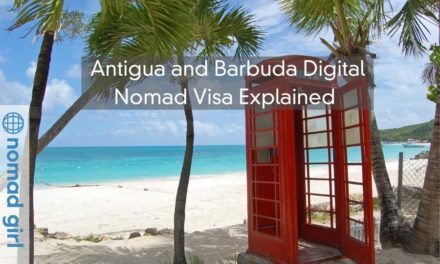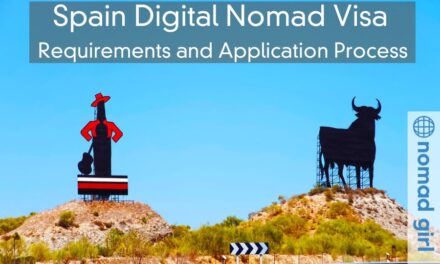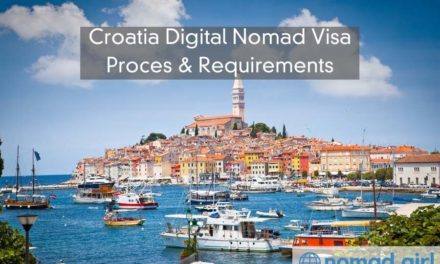In the quest for freedom and an adventure-laden lifestyle, I took the plunge into the world of the digital nomad lifestyle, attracted by the allure of exploring the globe while keeping my career on track.
First backpacking at my younger years back in the late 90s I transitioned to a fully digital nomad lifestyle in 2006. I had sold my business and whatever new work I was going to do it had to be fully location independent.
I have not been a full-time digital nomad till now, due to having a family I did make some commitments that kept me at a home base. I still had long travel stints where I had to do remote work.
Since 2018 I decided that online schooling for my children would free us from the shackles of a home base and I started to embrace the slowmad form of the digital nomad lifestyle. We stayed in locations for 1 to 6 months of the time and embraced local cultures.
However, as the years have passed, I’ve encountered numerous hurdles that have made me question, “Is it truly worth the hassle?”
Here, I delve into the complexities and challenges that have led me to believe that, despite its appeal, the digital nomad lifestyle is fraught with obstacles that are hard to overlook.
1. Covid Vaccine – Forget About It
When the pandemic hit, I was faced with a stark reality. I was in Italy and only locals were getting priority for COVID-19 vaccines, leaving me, a digital nomad, in a precarious situation.
I ventured back to my passport country, only to find my digital identification number expired, rendering me ineligible for vaccination. This ordeal highlighted the discrimination and increased travel restrictions for those unvaccinated.
This pushed me to Romania for a Janssen vaccine, which soon became obsolete in the eyes of some European authorities.
The cycle of discrimination and travel restrictions, without a viable solution for digital nomads outside the national healthcare system, was disheartening.
2. Vaccine and Visa Borders
The Covid situation turned tourists and digital nomads into pariahs. I watched as borders closed, visas were revoked, and the rights of long-term residency programs like Malaysia’s MM2H, which once offered a semblance of stability and access to residency, evaporated.
MM2H visa holders were denied access to the country, their rights seemingly stripped overnight, showcasing the transient nature of their acceptance in these countries.
3. You Lose Access to Credit
Leaving your home country to embrace a digital nomad lifestyle has its financial downsides. I saw my credit score plummeting as I was not financially transacting.
This would leave me stranded upon my return with no access to credit to fund property or get access to business finance. There is a good article on why our credit system is not geared to digital nomads.
For younger digital nomads in their 20s, this is even more acute. Saddled with student debt, and no credit record, makes returning home even harder and sometimes even out of reach.
This lack of financial stability, both abroad and at home, poses a significant threat to a digital nomad’s future.
4. You Have Zero Voting Rights
As a digital nomad, I found myself politically voiceless. My right to vote was tied to a homeland with which I no longer resonated.
Even countries that welcomed me with a Digital Nomad Visa or long-term residency offered no real platform for political expression, leaving me feeling disconnected and powerless.
5. Drivers Licence Issues
Navigating the world in a rental car became a maze of international driving permits, each with its expiration and limitations.
The simplicity of driving with a local license was a distant memory, replaced by the hassle of securing and renewing the necessary permits, often necessitating inconvenient trips back home.
Some countries do offer local driver’s licences to tourists, this helps when staying longer term in a country.
6. Social Security Drop
Severing tax ties meant also cutting off social security benefits, a safety net I hadn’t fully appreciated until it was gone.
The importance of setting aside savings for the future became glaringly apparent, a stark reminder of the security I had forsaken.
When you are a digital nomad in your 20s, retirement seems far and distant. Putting money aside for retirement as early as possible helps grow your fund for a later age.
7. Geo Restricted Phone Apps & Media Rights
The digital barriers I encountered were frustrating. Downloading a local app or updating a banking app became a complex ordeal due to geo-restrictions.
The content I once took for granted, from Netflix to live sports, was now segmented by region, leaving me disconnected from my home culture and entertainment.

8. Expensive Health Insurance
The reliance on travel health insurance was a naive mistake. I quickly learned that it only covered emergencies and offered no long-term health security.
Transitioning to full international health insurance was a financial shock, with costs significantly higher than anticipated, emphasizing the vulnerability of my health care strategy.
9. Local Backlash against Digital Nomads
The perception of digital nomads as tax-evading freeloaders became more pronounced. Digital nomads were blamed for driving up local prices, particularly in housing, creating a divide between us and the local communities.

This backlash was a wake-up call to the unintended consequences of the digital nomad lifestyle on the places we temporarily call home.
10. Identification Issues
Trying to access my Australian bank accounts and pension from abroad turned into a bureaucratic nightmare.
The requirement for an Australian driver’s license and Medicare card, neither of which I possessed anymore, was a painful reminder of the complexity and discrimination I faced for choosing to live outside my birth country.
Conclusion
Reflecting on these challenges, it’s clear that the world isn’t designed for digital nomads. The allure of freedom and adventure comes at a cost, from healthcare and financial instability to legal and social hurdles.
While the experiences and memories I’ve gained are invaluable, the constant obstacles and lack of support have led me to reconsider the sustainability of this lifestyle.
For those contemplating a leap into digital nomadism, it’s crucial to weigh these challenges against the freedom it promises.
Perhaps in time, the world will adapt to accommodate this growing community, but for now, the digital nomad path is one strewn with hurdles that demand careful consideration.


